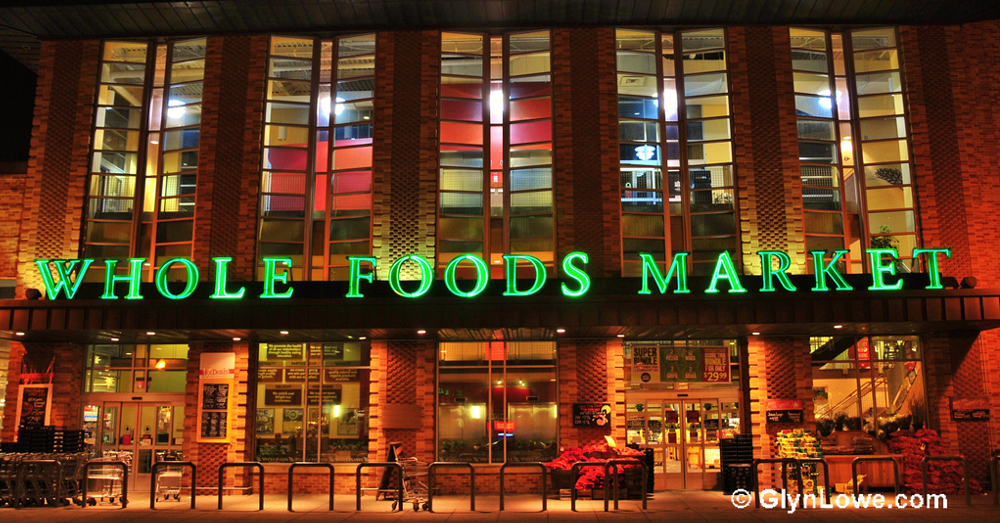
Whole Foods Fails Consumers Again, ‘Delays’ GMO Labeling
June 4, 2018 | Katherine Paul
Organic Consumers Association
Five years ago, under mounting pressure from consumers, Whole Foods Market (WFM) announced that by the end of 2018, the then-largest retailer of organic foods would require all of its suppliers to clearly label GMO ingredients and foods.
Last week, the company reneged on that commitment, or at least the timeline part of it.
This time, there was no flashy press release, no media fanfare. Instead, the news was circulated quietly in an email to the company’s suppliers.
In the email, WFM Chief Operations Officer A.C. Gallo claimed the company, now owned by Amazon, is merely “pausing” the plan, until the U.S. Department of Agriculture (USDA) finalizes labeling requirements under the federal mandatory labeling law passed in July 2016—a law that (intentionally) has no teeth.
WFM claims it doesn’t want to burden suppliers by making them follow one set of labeling requirements for WFM, and another to satisfy the federal law. That statement suggests that the company will simply go along with the federal labeling requirements—a far weaker plan than what WFM originally promised consumers—and drop its own plan.
If there were ever any doubt about WFM’s intentions, those intentions are clear now: The company’s GMO labeling promise, too little too late from the get-go, was always more about saving face and scamming consumers than it was about real transparency and forcing Big Food to change its ways.
Dragged kicking and screaming into the GMO labeling battle
In 2011, the Chicago Tribune reported on a protest organized by Organic Consumers Association against WFM. At issue? The retailer’s intentionally misleading statements about its commitment to carrying only healthy, “natural,” organic foods—when in fact the store’s shelves were full of products containing unlabeled GMO ingredients.
A year later, as public sentiment around GMO labeling heated up after California citizens launched a mandatory GMO labeling ballot initiative (Proposition 37), WFM market became a target for critics, OCA included, who accused the retailer of “sitting out” the fight for labels.
Under pressure, WFM did eventually officially endorse California’s Proposition 37. But the endorsement was tainted by then-CEO John Mackey’s claim that the “jury is still out” on the health and safety of GMOs.
To make matters worse, WFM didn’t contribute a dime to the pro-labeling campaign, even though other organic retailers, including Dr. Bronner’s, Mercola.com and Nature’s Path, pitched in millions. The retail chain wouldn’t even allow signature-gathering outside its stores.
Labeling promise—an act of marketing desperation?
After Prop 37 was (narrowly) defeated, WFM tried to win back disgruntled consumers by announcing that it would become the first major retailer to require labels on GMO foods or ingredients sold in its stores. “We are putting a stake in the ground on GMO labeling to support the consumer’s right to know,” Walter Robb, then-CEO said during his March 14 [2013] presentation at the Natural Products Expo West in Anaheim, California.
Was it a genuine commitment? Or just PR stunt to help diffuse some of the bad press resulting from its lack of support for California’s labeling initiative?
We tried to give the company the benefit of the doubt, though we questioned the five-year goal. If WFM in the UK was already labeling GMOs, why wait five years to provide U.S. consumers with the same level of transparency?
Still, we thought, if WFM, one of the largest buyers of organic products in the U.S., required suppliers to label GMOs, this would be a giant win for consumers.
But any glimmer of hope that WFM might do the right thing was extinguished when CEO Robb threw his support behind the DARK Act—the federal GMO labeling law that effectively ended the fight for meaningful GMO labeling by including a raft of exclusions and allowing companies to use electronic barcodes and other obfuscatory means of “disclosing” GMO ingredients. (The USDA is now considering using these silly images to “warn” consumers about GMOs).
Where does that leave consumers? Without labels, for sure. But today’s increasingly savvy consumers aren’t without options. Many will turn to more reliable, and more loyal, retailers and brands as they seek out organic and regenerative products, many of them from local (and reliable) sources.
WFM may have only recently sold out to Amazon. But it sold out consumers long ago.
Want to give WFM a piece of your mind? Take action here.
Katherine Paul is associate director of the Organic Consumers Association. To keep up with OCA’s news and alerts, sign up here.
